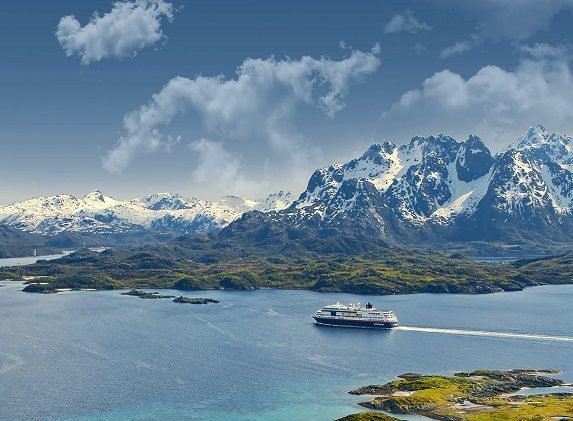 Aiming for zero emission ships by 2030, Hurtigruten Norway has kicked off an innovative research project in partnership with 13 research and maritime partners. Utilising cutting edge research, the new consortium is dedicated to developing innovative, zero-emission solutions for passenger ships of the future, focused on creating the world’s most energy-efficient and sustainable cruise ship by 2030.
Aiming for zero emission ships by 2030, Hurtigruten Norway has kicked off an innovative research project in partnership with 13 research and maritime partners. Utilising cutting edge research, the new consortium is dedicated to developing innovative, zero-emission solutions for passenger ships of the future, focused on creating the world’s most energy-efficient and sustainable cruise ship by 2030.
Awarded €7 million in public funding, the Sea Zero project now has a total budget of €13 million invested in its initial research and development phase dedicated to developing pioneering solutions for energy efficiency, state-of-the-art battery solutions, propulsion technology, hull design, sustainable building practices, and onboard hotel operations to reduce energy use to a minimum.
The project builds on Hurtigruten’s 130-year pioneering heritage and aims to develop zero-emission ships specifically adapted to the Norwegian coast, with the first vessel expected to be delivered by 2030. With only 0.1% of all vessels worldwide currently utlising zero-emission technology, Hurtigruten Norway’s project is expected to have a significant impact on both the sustainability of the cruise industry and the future of travel generally.
Rolling out from now until 2025, the research phase will form a key part the new build project, and the consortium is looking to make the new ships both sea and air emission free, with one of the potential game-changers being a significant reduction in energy consumption.
Says Hurtigruten Norway SVP for Marine Operations, Gerry Larsson-Fedde, “We want to build the most energy-efficient passenger ship ever. We will turn every stone to cut both energy use, waste and emissions to a minimum.”
“Consumers will not continue to accept the use of heavy fuel oil or climate targets that are way behind the Paris Agreement. Zero-emission ships will be the game-changer our industry needs”, he adds.
Onboard hotel operations can sometimes consume up to 50 % of a ship’s total energy use and will be one of the project’s key focus areas, with development of new and alternative energy solutions crucial to the project’s success, once waste heat from engines is no longer available as a heat source when batteries replace traditional engines.
More broadly, the Sea Zero project has the potential to impact the cruise and passenger transport industry generally by developing and demonstrating zero-emission ships and making new green technologies and products available for a large and global market. The project’s total value creation potential is projected to be several hundred million euros up to 2030, with a significant portion of this expected to be realised when Hurtigruten Norway signs a contract for newbuilding on the first zero-emission ship.
Sea Zero Project Partners
- Hurtigruten Norway
- SINTEF
- Cavotec SA
- VARD
- Brunvoll
- Plug
- Corvus Energy
- DNV
- Sustainable Energy Catapult
- Teknotherm
- Jotun
- Norwegian Maritime Authority
- Bergen Port
- Norske Havner



















